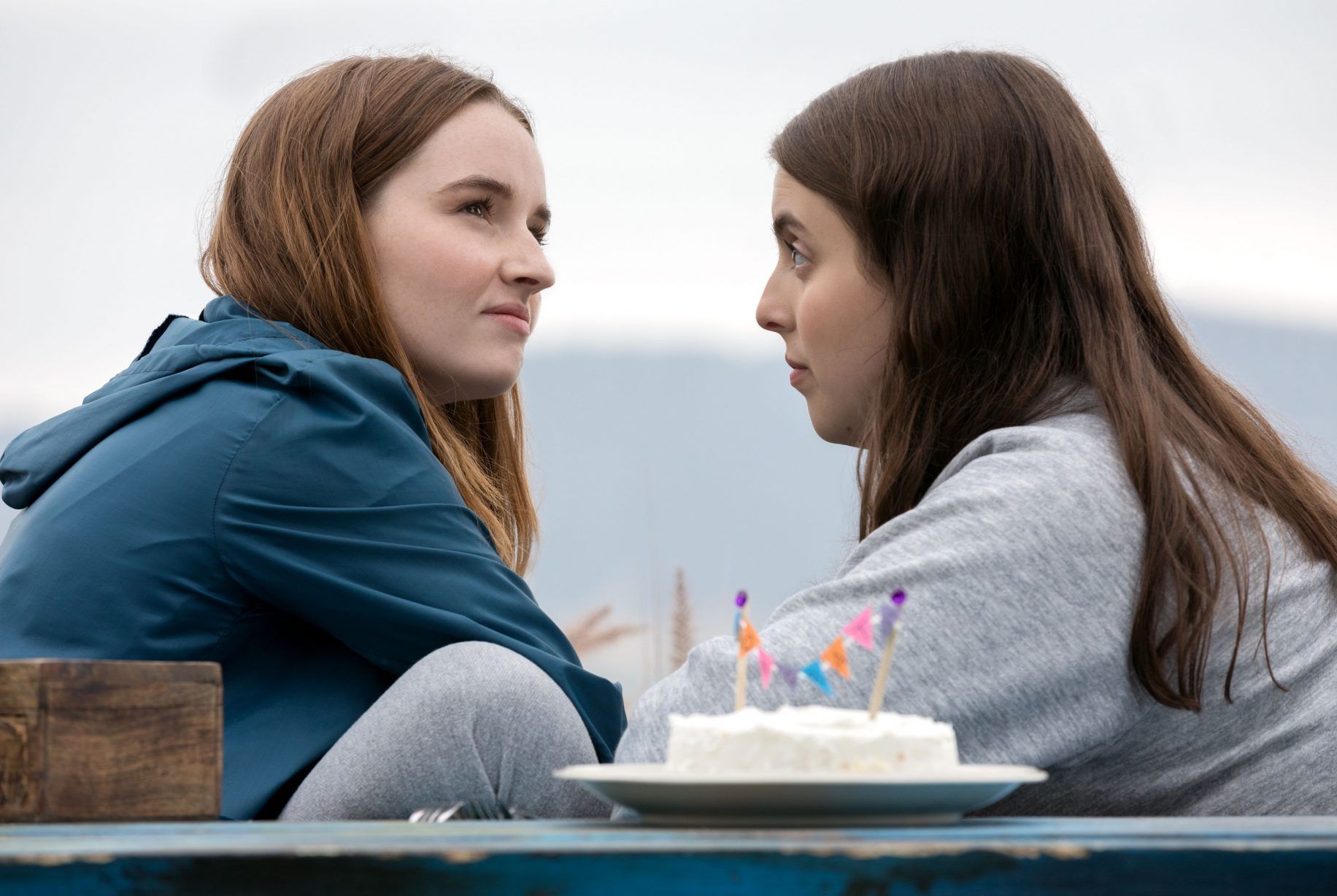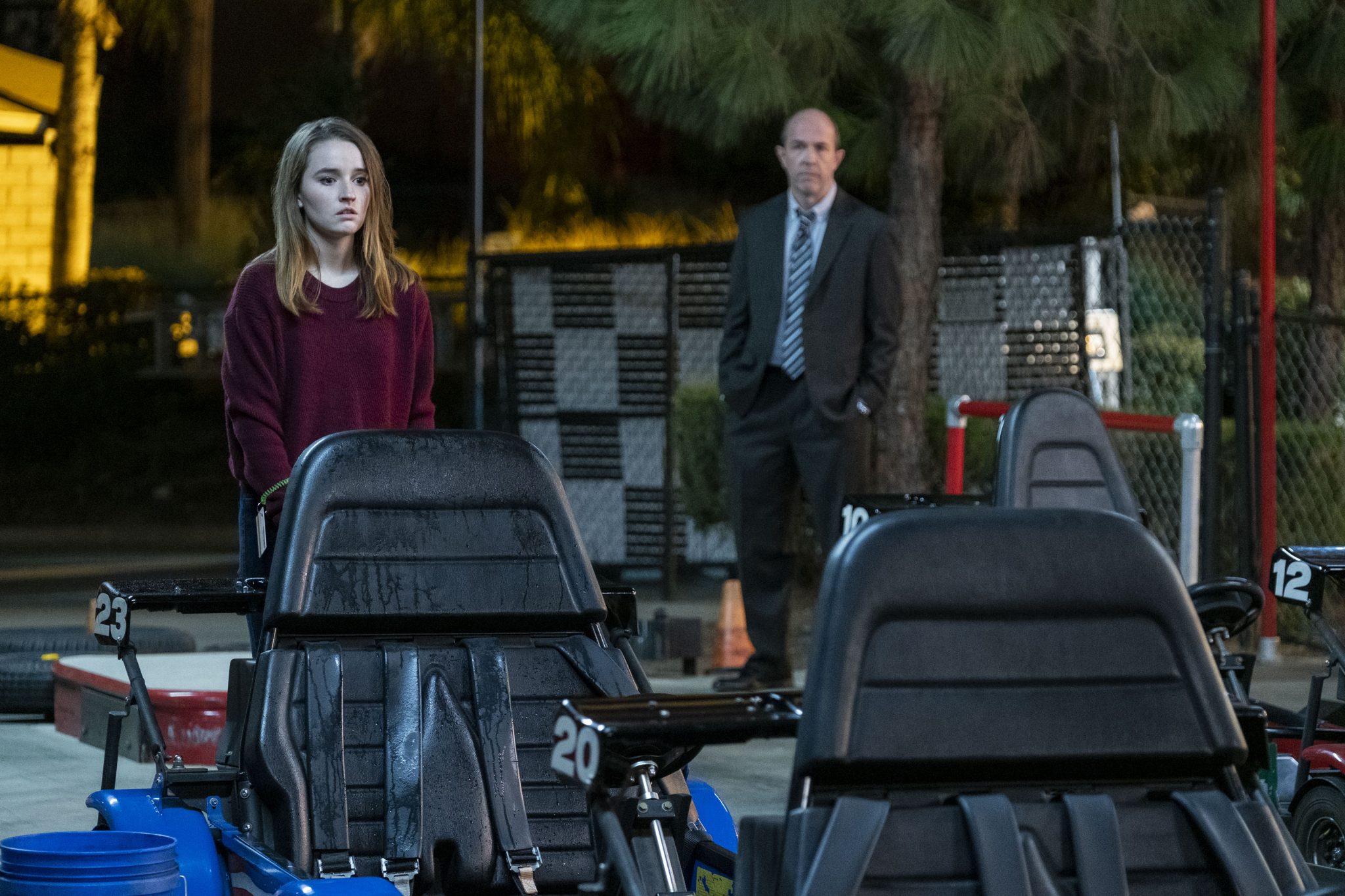Kaitlyn Dever talks diversity, representation and her hilarious run-in with Tom Hanks

Kaitlyn Dever is an actor beloved by A-listers, awards panels and the queer community. Stylist speaks to the Booksmart star about rave reviews and representation.
Kaitlyn Dever is the breakout actor of the year. But don’t take our word for it. See Margot Robbie, who loved her in Booksmart, the brainiest and best teen comedy of 2019. Or listen to Ellen DeGeneres, who thought Unbelievable, the Netflix real-life crime drama in which Dever stars, was one of the year’s most important shows. Or hear out Tom Hanks, who took the opportunity of this month’s Golden Globes to voice his praise of Dever’s talent to her face.
“It was so shocking when Tom Hanks approached me. I didn’t know what to do,” Dever tells Stylist down the line from LA. “I had a body freeze. He told me I should be very proud and gave me his Golden Globe that he just won. He said, ‘You’re going to be holding this soon. You should just get used to the feeling.’”
Arizona-born Dever should probably heed Hanks’ words and start making room on the mantelpiece. At the Globes, the actor was rightly nominated for her role in Unbelievable, the female-led crime procedural drama in which she played real-life sexual assault survivor Marie Adler, who was charged with falsely reporting her rape. A damning critique of rape culture and cathartic study of humanity in its toughest moments (as two female detectives, unbeknownst to Marie, heroically work to crack the case), Stylist named the show as one of the best of last year.
Dever’s latest nomination, in the EE Rising Star category at this year’s Baftas, is an acknowledgement of this alongside her work on Booksmart, the film that launched the 23-year-old – who has been acting since she was 10 – into the wider cultural consciousness. Wildly different, and just plain wild, Booksmart is a raucous comedy in the vein of Bridesmaids in which two Type A best friends – Amy (played by Dever) and Molly (Beanie Feldstein) decide to break the rules and have a badass night out before graduation.
Booksmart is a gag-a-second riot, powered by the genuine bond between its co-leads (Dever and Feldstein became such BFFs that they moved in together during filming). Not everyone got the rude, raucous, female-fronted jokes – Delta Airlines had to do an embarrassing about turn after it deleted several queer scenes from its in-flight edit of the film – but mostly it has been heralded as a game-changer for on-screen representation of women and the LGBTQ+ community, all while being seriously fun.
“It’s rare to work on a project that you have so much passion and so much deep, deep love for,” says Dever. “And that was Booksmart for me.”
In Booksmart your character is a truly fresh representation of a young queer woman. How does it feel to play a part that will be meaningful to young LGBTQ+ people?
What I love about Booksmart is that it has a lot of representation in it. Amy is not the only queer character in the movie and the sexuality within the film is so fluid. What’s so great about our director Olivia [Wilde] is that she really understands this generation right now. And it’s a generation that is very evolved, progressive, very forward and very loud. You can be whoever you want to be.
What was the response to the movie like?
I had the coolest moment ever on the press tour for Booksmart when a young queer woman thanked me for playing Amy. She grew up in a small town in Michigan. She said that growing up, she couldn’t see herself on screen, ever, and in order to eke out representation she went to tiny theatres to see some small movies that no one saw. She was just so grateful that Booksmart was now being seen on a wide, wide scale. It dawned on me that it’s so cool how it’s been seen by so many.
You enjoyed some rave reviews at the Golden Globes. How was that?
I cried after the Tom Hanks moment. On the red carpet, I kept thinking about the importance of it all and wanting to cry but then also thinking, ‘I probably shouldn’t be crying right now. I should probably suck it up and act natural.’ I spoke to Cynthia Erivo [nominated for Harriet] and she just told me to breathe, which was reassuring.
Who did you look up to growing up?
Sandra Bullock is a big one for me. And I really admire Charlize Theron and Regina King.
Awards season is a reminder that there’s still a way to go in terms of representation for women, people of colour and LGBTQ+ people. What’s your perspective on that?
There’s definitely room for improvement. The past few years I’ve worked with so many female directors, but also female camera operators. I grew up going to set and I saw only male camera operators. There seemed like this stigma against women, like they weren’t able to do that job. But they are perfectly able and I’ve been seeing more and more women in every department, and also female friends joining forces to make movies.
Both of your big projects from 2019 had a majority female cast and crew. How did that affect your work on Unbelievable?
It was definitely really helpful. We had a lot of amazing men on set, too, but it’s great because women are naturally more comfortable around each other and given the subject matter, to me, as an actor, it was really helpful to have that female energy and support during the difficult first three episodes [which depict the assault and aftermath]. It was the hardest work I’ve ever done in my life and important to tell that story from the female voice as well.
What was the most important thing to get right for you?
What Marie was going through is unimaginable. I got lost in the emotion of it. I didn’t intend on doing that. I just felt so bad and so heartbroken by the story. What she went through was something that no one should ever have to go through and will affect her for the rest of her life. It felt important to see the struggle of covering; covering the sadness and the deceit she felt in not being believed.
What did you learn from it?
That people react to trauma very differently because they are brought up in the world differently. Marie had dealt with so much trauma previously, so with the assault she was able to just turn it off and act like nothing happened. But others may react differently. It’s a very important thing for the world to see.
The show excels in showing how trauma that begins with an assault is compounded by the procedures and prejudices which follow. I had no idea that you have to get interviewed by a cop and then you have to write out a statement, the exact statement you just said out loud, and then from there you have to go to the hospital and get examined in the most invasive way.
It is a series of assaults. Some people go and get a rape kit done and it doesn’t even get checked. After filming the show, we met with members of Congress to get the Debbie Smith Act passed, which is an act that will help eliminate rape kit backlog. Right now, there are 200,000 rape kits just sitting there waiting to be tested.
You played two very different roles in 2019, but both felt culturally impactful. Will they affect the choices you make going forward?
They already have. I just worked on an anthology series called Monsterland where I play a mum for the first time, a 19-year-old mum to a four- year-old. That felt important because it shows what kind of place a woman like that has in the world and the room we have for her. I want to be able to tell that kind of powerful story for that kind of girl. With both Amy in Booksmart and Marie in Unbelievable, I really hoped people would be able to see themselves on screen. I love having the opportunity to act, it’s my favourite thing in the world, but also, if I’m able to give a voice to others while I’m doing it, what more can I ask for?
Voting for the EE Rising Star Award is open at ee.co.uk/bafta. The winner will be announced at the EE Baftas on 2 February
Photography: Taylor Jewell
Images: Netflix, Shutterstock
Source: Read Full Article

